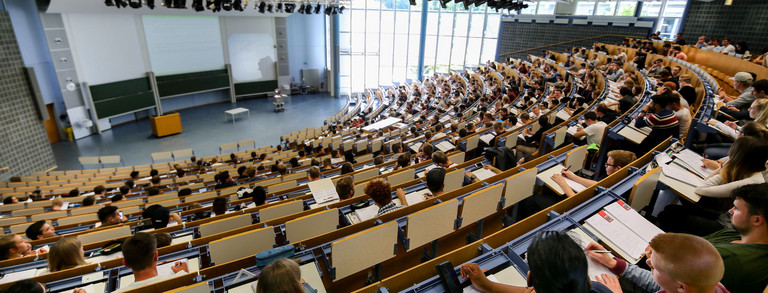F-Project
The F-Project is aimed at third-year students. It enables students to further improve their skills of scientific work at intermediary stage of their studies. Under the supervision of the module leaders, students work independently and self-organised on a larger research project for one year. The topics provided form a framework, but are independently implemented by the students in more concrete questions and work packages. Over the course of the project, the students present their current project status in the form of a proposal, an interim report, and a final report. In addition, a faculty-public project market takes place around Easter time, where students present their interim results to a larger public.
This year's project focuses on unveiling the hinterlands of today and tomorrow. Urban settings are the main form of human settlements over the planet and the main focus of public policies, planning strategies, and research. The Atlas of the Human Planet estimates for 2015 that 85% of global inhabitants live in urban areas representing 7.6 % of the global landmass (and growing). Yet, these dramatic percentages downplay the actual spatial extent and range of influence of the urban dynamics beyond the urban limits. For this reason, in this F-Project, we will focus on debunking the idea of cities reproducing and maintaining themselves by addressing the dynamics happening (and those yet to come) in areas traditionally seen as non-urban. By doing so, we expect that students will expand and deepen their knowledge and understanding of spatial processes triggered by urban growth but manifesting themselves beyond cities. In particular, the attention will be given to hinterlands supporting urban clusters by analysing how landscapes accommodate global-scale logistics, ICT infrastructures, distribution centres, automated manufacturing, mechanised agriculture, among others. By exploring and unveiling the new forces and actors shaping and mastering those landscapes, the project aims to evaluate the present and future challenges they pose for spatial planning. Throughout the module stages, we set out to achieve empirical results, such as conceptual representations, mapping networks, and modelling future scenarios, as well as theoretical outcomes, such as questioning our understanding of the nature and extent of urbanisation, and its spatial expansion. Students are expected to explore how spatial theories and relations to the natural environment, rural areas, and human impact are translated into spatial dynamics, as well as to inquire into the questions of accountability involved in mega-scale and planetary transformations triggered by urbanisation. These issues could be unpacked in the framework of various cases, be it in the context of reclaiming post-industrial landscapes, the realisation of new global infrastructure projects, or the constantly increasing climatic and ecosystemic challenges. Along the way, students will get familiar with the evolution of environmental paradigms in planning in different contexts, from the modernist attitude of ‘mastering the nature’, ‘(geo)engineering ecosystems’, to social-ecological urbanism, posthuman geographies, inter alia.

